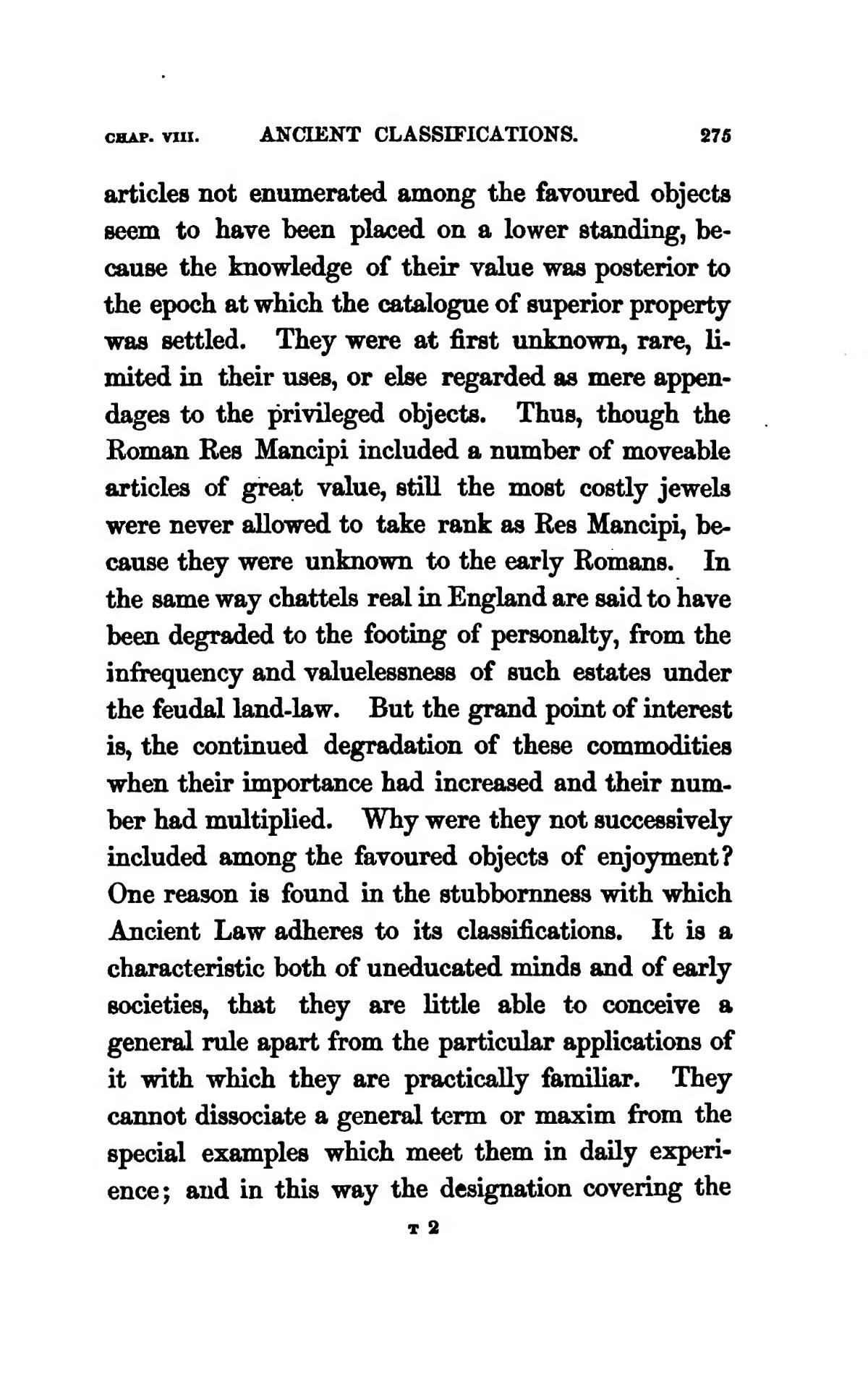articles not enumerated among the favoured objects seem to have been placed on a lower standing, because the knowledge of their value was posterior to the epoch at which the catalogue of superior property was settled. They were at first unknown, rare, limited in their uses, or else regarded as mere appendages to the privileged objects. Thus, though the Roman Res Mancipi included a number of moveable articles of great value, still the most costly jewels were never allowed to take rank as Res Mancipi, because they were unknown to the early Romans. In the same way chattels real in England are said to have been degraded to the footing of personalty, from the infrequency and valuelessness of such estates under the feudal land-law. But the grand point of interest is, the continued degradation of these commodities when their importance had increased and their number had multiplied. Why were they not successively included among the favoured objects of enjoyment? One reason is found in the stubbornness with which Ancient Law adheres to its classifications. It is a characteristic both of uneducated minds and of early societies, that they are little able to conceive a general rule apart from the particular applications of it with which they are practically familiar. They cannot dissociate a general term or maxim from the special examples which meet them in daily experience; and in this way the designation covering the
T 2
